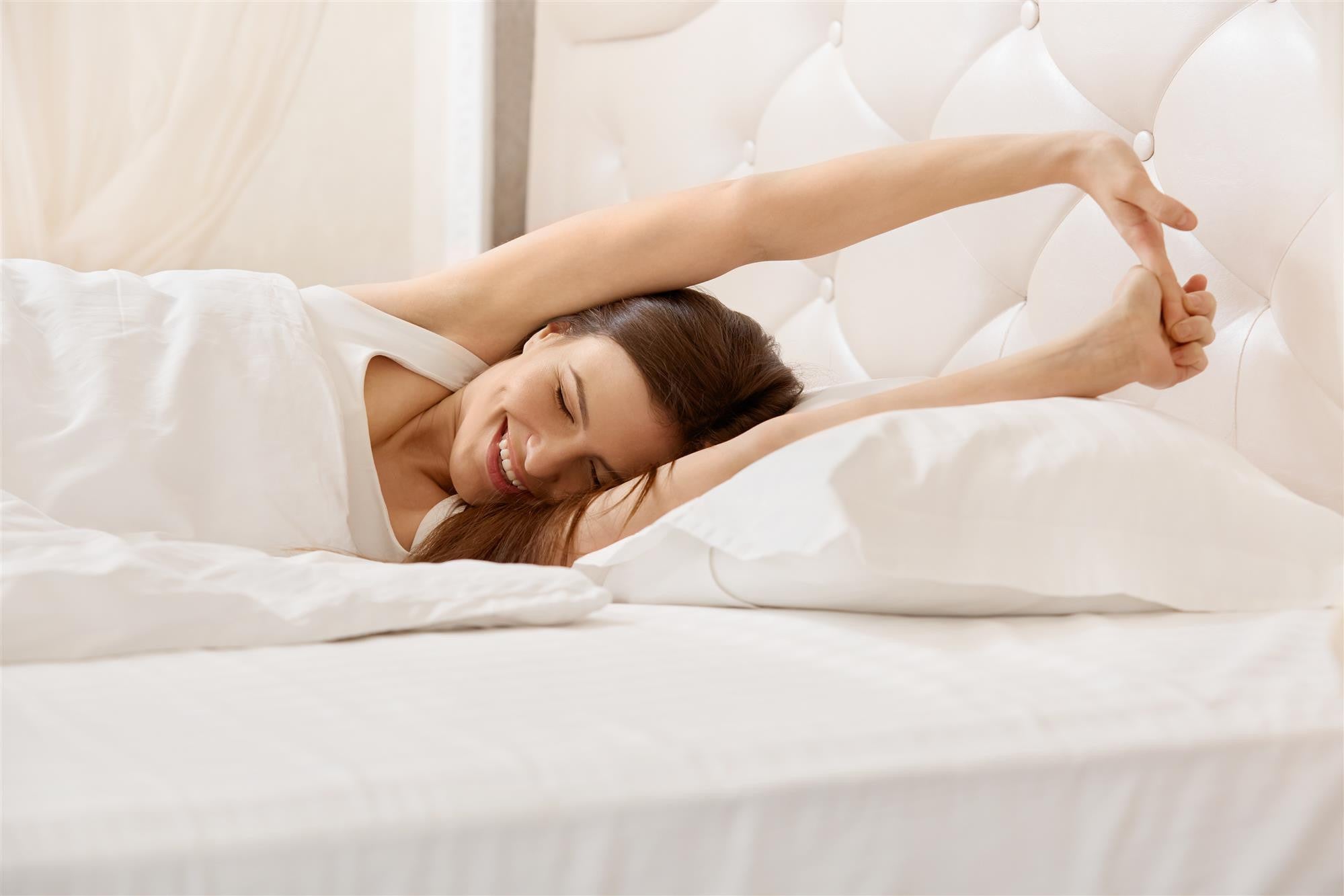Blog
Get in (Circadian) Rhythm: The importance of getting into a routine when it comes to beauty sleep

Sleep makes you feel refreshed and ready to take on the day, but its importance goes way beyond relieving the stresses of the day before. Getting the proper amount of sleep is a key factor to a healthy lifestyle. Sleep plays a vital role in proper brain function, emotional wellbeing, over all physical health and daily performance functioning.
According to the American Psychological Association, approximately 60 percent of adults report having difficulty sleeping at least a few nights a week or more. The Centers for Disease Control and Prevention found that 1 in 25 people have admitted to having fallen asleep while driving during the previous month.
Sleep deprivation also has economic consequences, too. In an article published by The Wall Street Journal, it was discovered that chronic exhaustion of employees costs $63.2 billion of dollars in lost productivity each year. In fact, some companies are investing in programs to help educate employees on how to improve their quality of sleep.
The Connection Between Sleep, Health and Beauty
Sleep loss is tied to a frightening variety of health and beauty problems. It can compromise:
- Brain function, memory and decision making
- The immune system
- The heart, liver and kidneys
- The metabolism, making you hungrier and more likely to gain weight
- Response time, especially when driving
- Mood and emotional stability
- Skin tone and texture, making you look unapproachable
Here are some of the habits you can try to fall asleep easier and wake up feeling refreshed:
Set a schedule
Most adults need between 7-9 hours of sleep per night. Ideally you should set the same wake up and bedtime every morning and night. This helps your body get into a regular routine resulting in more energy and productivity throughout the day.
Be careful when it comes to napping
While power naps lasting no more than 30 minutes are a great way to recharge yourself, be cautious not to nap any longer. Napping after 3:00p.m. can also compromise nightly sleep patterns.
Begin to unwind early
If you know you need to be to sleep by a certain time, begin to dim the lights ideally 30-60 minutes before you plan on getting into bed. This helps tell your brain it’s time for sleep.
Create a relaxation ritual
If you have a difficult time shutting your brain off at the end of the day, try incorporating a relaxing ritual at least 30 minutes before you want to fall asleep. Activities like taking a hot bath, reading, journaling, listening to relaxing music or rubbing relaxing essential oils like Lavender or Sandalwood that help induce sleep when inhaled.
No TV
Make sure to shut down your TV, computer, iPad, video games or any other activities involving a bright screen at least 30-60 minutes before sleep. This helps your mind to shut off and help induce sleep.
Tools & devices
If you try the tips above and they don’t seem to be working, try using sleep tools and devices such as noise machines, sleep masks or earplugs.
Noise machines work by playing soothing sound options like rainfall, ocean waves, chirping birds and many more. They help block out noise and soothe the mind. Here are some reviews and comparisons of some of the best noise machines.
If noise is keeping you up late at night, earplugs are an economical and easy to eliminate noise. However, you should be aware of the risks of frequent and prolonged earplug use mentioned in this article from Livestrong.com.
Sleep masks are one of the best solutions to helping you obtain deep sleep. They work by blocking out light from your eyes and induce a state of absolute darkness. When your brain senses no light it begins to produce melatonin, which puts you to sleep. We like the one-size-fits-all Sleep Master® sleep mask, invented by JuveRest co-founder Cynthia Callendar.
Better sleep is possible. If you try the tips above and have no luck, it may be time to have a talk with your doctor.